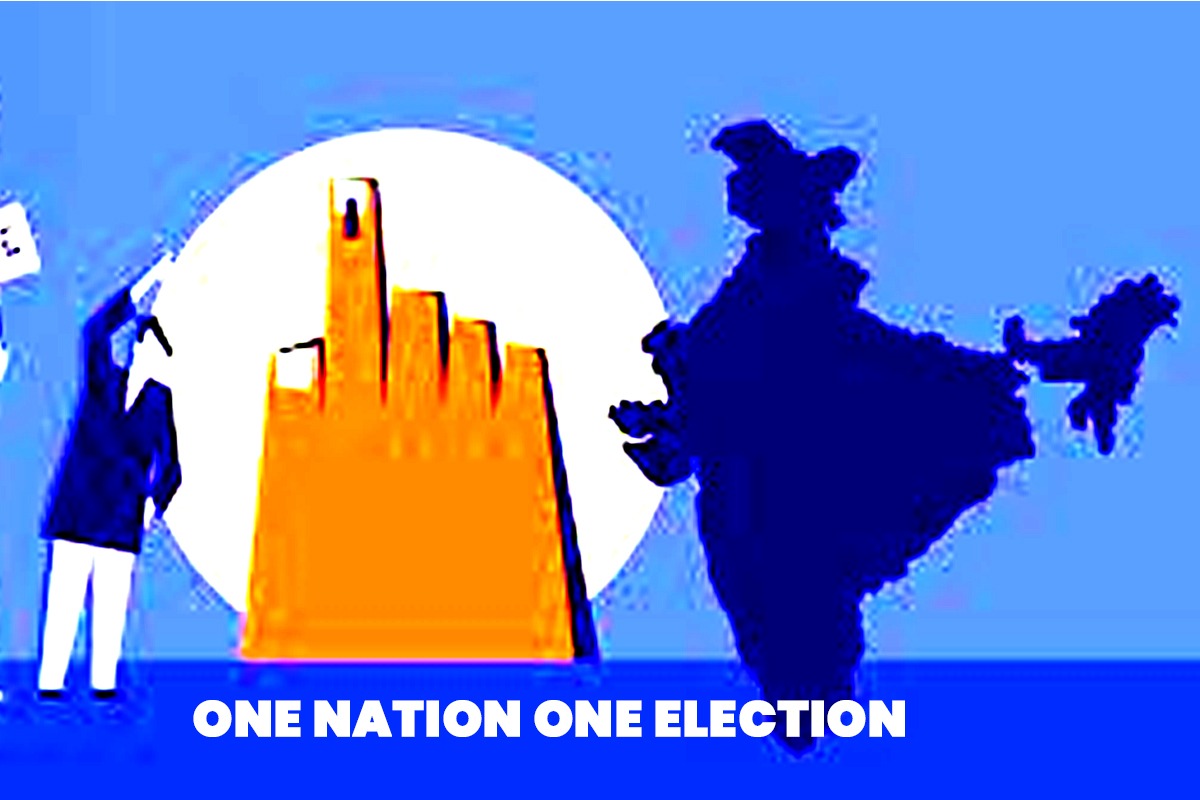

Proponents of ‘One Nation, One Election’ argue that it could significantly reduce election costs by consolidating state and national elections

NEW DELHI: The Central’s government’s move to explore the feasibility of One Nation, One Election has sparked debate and met with resistance from various opposition parties who question PM Narendra Modi’s intention.
The Centre recently established an 8-member panel to examine the legal and logistical aspects of implementing the policy. The committee, headed by former President Ram Nath Kovind and including Union home minister Amit Shah, will explore key aspects of this proposal, which experts say will have far-reaching implications.
One of the primary concerns the panel will address is whether a constitutional amendment is required to facilitate simultaneous elections and if such an amendment would need ratification by the states.
READ MORE: Kejriwal trashes One Nation, One Election; wants polls every 3 months
The panel’s mandate includes suggesting a framework for synchronizing elections at different levels of government. This entails aligning the terms of the Lok Sabha (the lower house of India’s Parliament) with those of the state legislative assemblies. Currently, Lok Sabha elections occur separately from state assembly elections, leading to frequent electoral cycles.
Proponents of ‘One Nation, One Election’ argue that it could significantly reduce election costs by consolidating state and national elections. Moreover, it could provide a stable five-year period for the government to focus on governance rather than election campaigning.
One of the main objectives of simultaneous elections is to end the “constant election cycle” in India, which is often cited as a hindrance to long-term development efforts. Prime Minister Narendra Modi has been a vocal advocate of simultaneous elections and highlighted the financial burden of continuous election cycles and their impact on development as a key rationale for this proposal.
However, not all political parties support the idea. Critics argue that implementing this policy would require amendments to five articles in the Constitution and the Representation of the People Act (1951). Moreover, they express concerns about how it would work in situations of a fractured mandate, no-confidence motions, defections, or other such events.
READ MORE: Kejriwal champions common welfare amid ‘One Nation, One Poll’ debate
Another major concern raised by opposition parties is that ‘One Nation, One Election’ could undermine federalism and regional democracy. They argue that it might give national parties an unfair advantage over regional ones and could lead voters to prioritize national issues in state elections.
The complexity of seat-sharing among like-minded parties in states with a large number of assembly seats is another obstacle. With 521 seats across state assemblies, it would be challenging to negotiate seat-sharing agreements, particularly if there are clashes between parties at the state level. Simultaneous elections for state assemblies and the Lok Sabha were held until 1967 but were disrupted due to premature dissolutions of legislative assemblies and the Lok Sabha. Various commissions and committees have recommended simultaneous elections over the years, citing its potential benefits.
According to official estimates, the 2019 general elections cost approximately ₹60,000 crore (roughly $8.5 billion). Comparatively, the combined presidential and Congressional election in the US in 2016 cost $6.5 billion. The debate surrounding ‘One Nation, One Election’ is multifaceted, encompassing legal, logistical, political, and financial aspects.